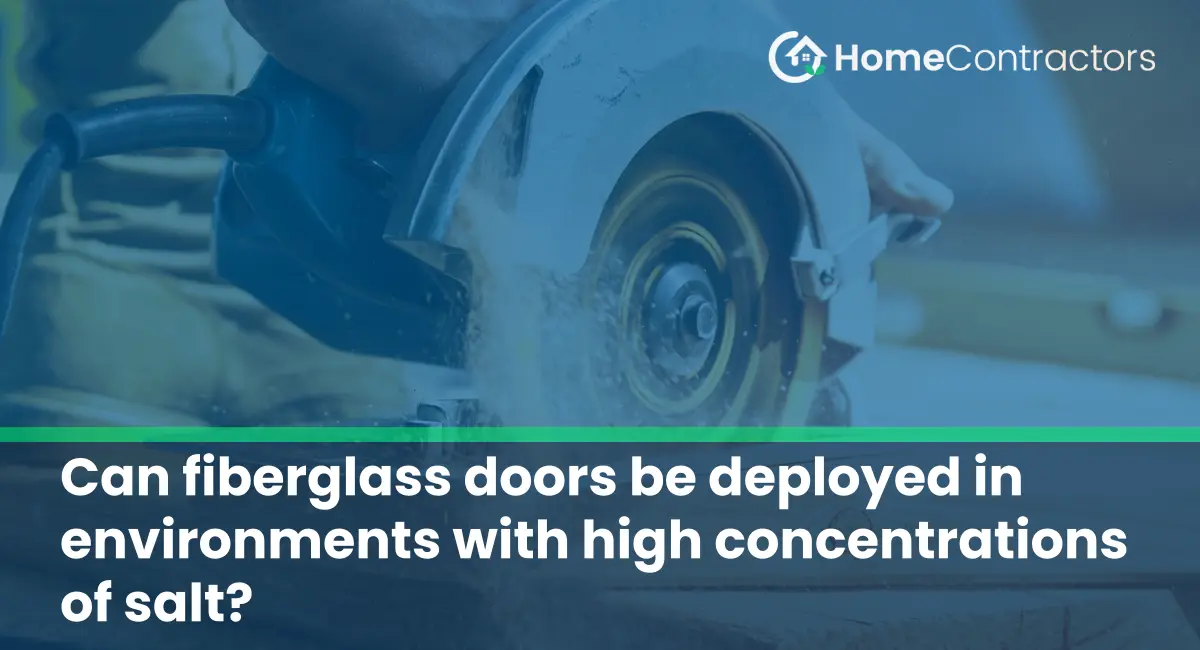Fiberglass doors are known for their durability, strength, and resistance to various environmental factors. However, when it comes to environments with high concentrations of salt, such as coastal areas, one might wonder if fiberglass doors are a suitable choice. In this article, we will explore the properties of fiberglass doors and evaluate whether they can be deployed in such salt-rich environments.
Understanding Fiberglass Doors
Fiberglass doors are composed of a composite material made from glass fiber reinforcements and a polymer resin matrix. This construction gives them a combination of desirable characteristics, including strength, impact resistance, and dimensional stability. Additionally, fiberglass doors are often praised for their ability to withstand harsh environmental conditions.
Resisting Corrosion
One of the primary concerns when considering the deployment of doors in salt-rich environments is corrosion. Salt can accelerate the corrosion process and compromise the integrity of various materials. However, fiberglass has inherent corrosion-resistant properties that make it an excellent choice for such environments.
Fiberglass is a non-porous material, meaning it does not absorb moisture. This characteristic is crucial in environments where there is a high concentration of salt in the air or water. Saltwater, in particular, can lead to corrosion in metals and wood, but fiberglass remains unaffected by its corrosive effects.
UV Resistance
Coastal areas typically experience high levels of sunlight due to minimal atmospheric pollution. The sun’s UV rays can cause fading, cracking, and deterioration in many materials over time. However, fiberglass doors have excellent UV resistance, making them suitable for deployment in environments with high concentrations of salt.
Fiberglass doors are manufactured with a protective gel coat on their surface. This gel coat not only provides an attractive finish but also acts as a barrier against UV radiation. It prevents harmful rays from penetrating the fiberglass material, ensuring the door’s longevity and preserving its aesthetic appeal.
Maintenance and Longevity
Another factor to consider is the maintenance and longevity of fiberglass doors in salt-rich environments. Fiberglass doors require minimal maintenance compared to other materials, such as wood or steel. They do not need to be painted or stained regularly, making them a cost-effective choice in the long run.
Furthermore, due to their corrosion-resistant properties, fiberglass doors have a longer lifespan than many alternatives. They are less prone to deterioration caused by saltwater or exposure to extreme weather conditions. This durability reduces the need for frequent replacements, minimizing both cost and environmental impact.
When it comes to deploying doors in environments with high concentrations of salt, fiberglass doors are an excellent choice. Their inherent corrosion resistance, UV protection, low maintenance requirements, and longevity make them ideal for coastal areas and other salt-rich locations. Fiberglass doors provide a reliable solution that can withstand the challenges posed by saltwater and harsh environmental conditions, ensuring both functionality and aesthetics.
